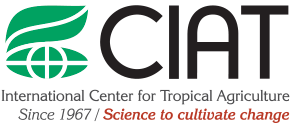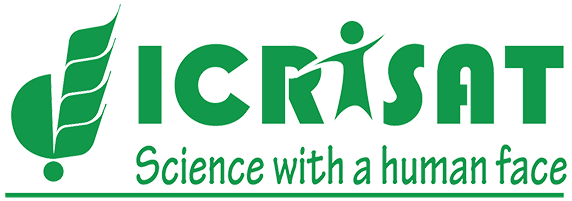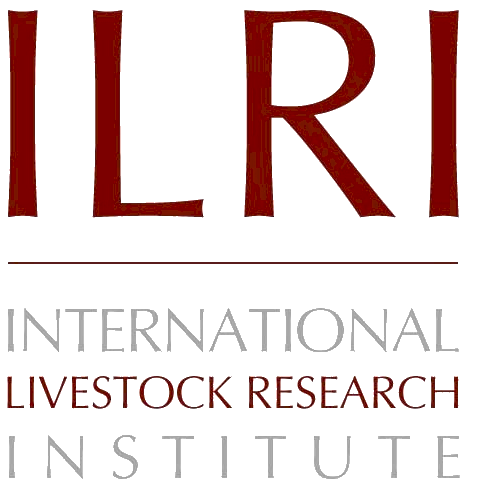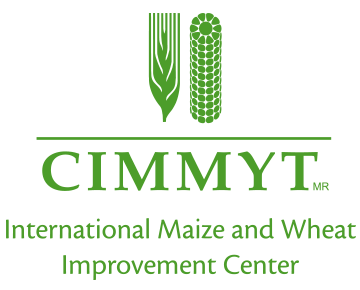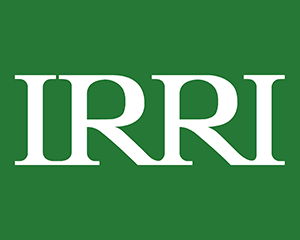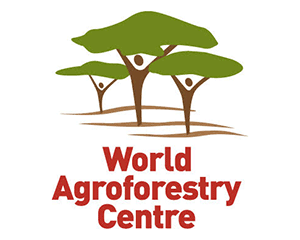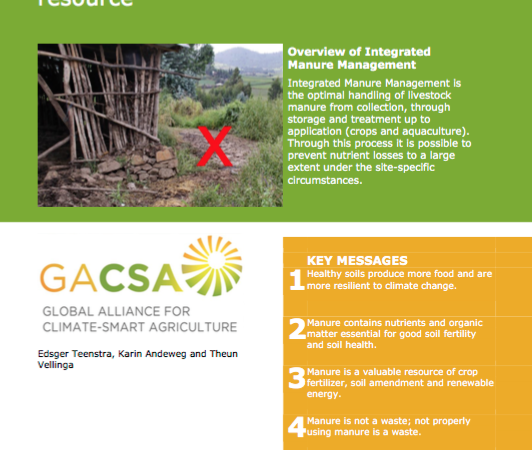
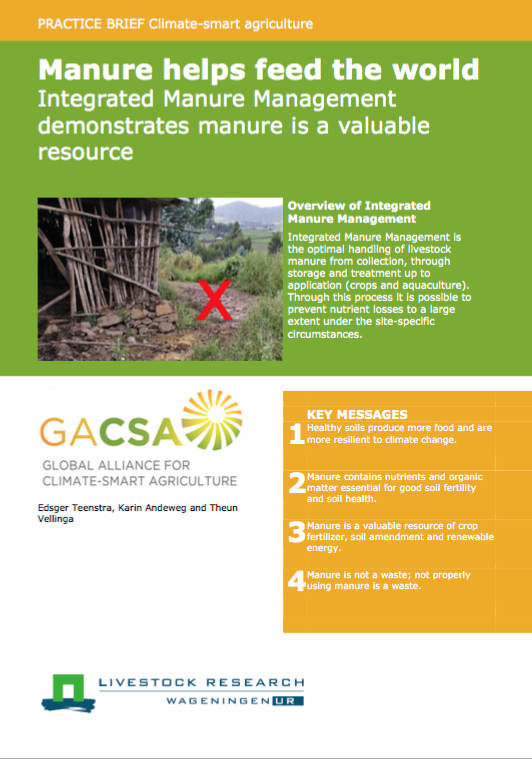
Overview of Integrated Manure Management
The key benefit of Integrated Manure Management is the prevention of nutrient losses as much as possible under the site-specific circumstances, while reducing greenhouse gas emissions and improving food security. Manure discharge should be prevented at all times.
The overall nitrogen losses from manure are estimated at approx. 40% (IPCC, 2006). Most nitrogen is lost as ammonia (volatilization) and nitrate (leaching and run-off). A 40% loss of a total of 70 million tonnes of nitrogen applied to soils (including pastures) with manure from swine, poultry and cattle, implies the loss of approx. 28 million tonnes of nitrogen; which accounts for about a quarter of the total nitrogen use with synthetic fertilisers (FAO, 2016).
Citation: Teenstra E, Andeweg K, Vellinga T. 2016. Manure helps feed the world: Integrated Manure Management demonstrates manure is a valuable resource. Copenhagen, Denmark: CGIAR Research Program on Climate Change, Agriculture and Food Security (CCAFS).


